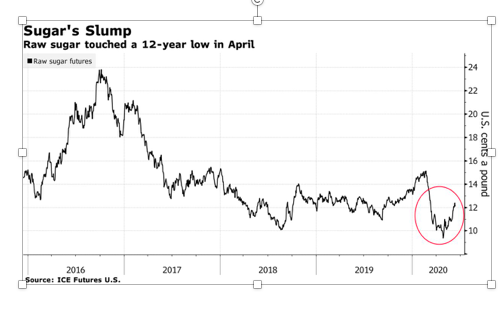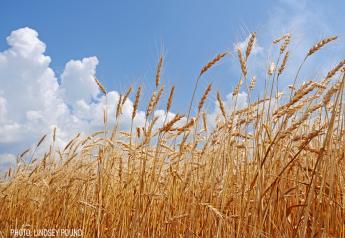John Phipps: COVID-19 Is Taking a Big Bite Out of Sugar Demand
USFR 062720 - Johns World
Amazingly to me, we have only been dealing with COVID-related life changes for less than 6 months. That’s long enough, though, for some unexpected patterns to show up in our consumption. One of the most surprising to me is a significant drop in sugar demand. Industry experts expect global sugar demand to drop this year for the first time in four decades.
One of the keys to that prediction has been large sales drops for beverage makers like Coca Cola and Pepsico – somewhere around 25% in April alone. The working theory is people who would order the gigantic size drink at a movie theater or gas station, won’t drink a liter of Coke at home, for whatever reasons. While the economics of soft drinks, especially from fountains has always been a big winner – not unlike beer from a keg, which is essentially 99% profit for the retailer – I never expected consumer’s drinking habits to be fazed by the cost of buying the same amount in grocery stores. It obviously has. Maybe the much higher cost due to packaging or the 12 oz. serving size was more limiting that we imagined. I also was mistaken about confections like candy and cookies. Maybe the trouble of baking cookies sank in after the third batch, and without easy access to Ho-Hos, that sugar consumption shrank as well. One final note, I wonder if added sugar in away-from home foods has always been higher than we thought, so home cooking tends to lower demand.
Another big factor is while sugar demand was already pressured by diet and energy drinks, as well as sugar-free foods, global demand growth was being driven to overcome that drag by developing countries’ increased consumption. Those markets are now struggling with economies in sharp recession and falling incomes.

None of this is good news for sugar prices, as you might expect. Meanwhile sugar stocks, which were expected to be sharply lower, may not decrease much. This doesn’t have much effect here, because of our highly protected sugar industry, but it does affect the rest of the world. All official reports about sugar supply and demand I have read carefully note how COVID makes forecasting nearly impossible.
There is some bizarre irony in the fact that while urged, even nagged, by medical professionals to reduce our sugar intake to counteract the growing threat of obesity, it took another medical threat – COVID19 – to move the needle on sugar consumption.







